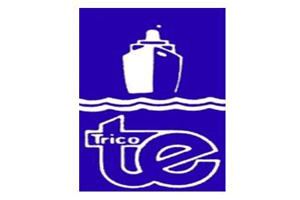





















































By the year 2025, BT Openreach will be discontinuing the Public Switched Telephone Network (PSTN), necessitating a transition away from PSTN-based services for all users, including businesses.
The recommended alternative is Voice over Internet Protocol (VoIP), a technology that enables voice calls and data transmission through an internet connection.
This shift marks a significant milestone in the United Kingdom’s widespread migration to IP-based networks, as VoIP core networks are poised to replace all legacy PSTN services within a few years.
Prepare yourself for the future of telephony by replacing your landline with VoIP before the Public Switch Telephone Network (PSTN) undergoes its shutdown in 2025.
Transitioning to VoIP is a smooth and seamless process that avoids lengthy periods without your business phone. It is advisable to take action now, before a significant surge in demand for these services, to ensure a swift and effortless deployment.
VoIP eliminates the need to acquire a new phone number, allowing you to retain your current one and ensuring uninterrupted accessibility for your customers.
VoIP solutions offer user-friendly interfaces and can be seamlessly utilised across various devices, from your existing analog phones to your mobile phones, desktops, and tablets.
The remarkable speed of broadband has effectively eliminated any concerns regarding call quality. Countless businesses exclusively depend on VoIP for their voice communication, indicating its reliability and suitability.
While the complete shutdown of PSTN in 2025 may appear to be in the distant future, numerous areas in the UK will experience the impact much earlier through a cessation of sales for new ISDN or PSTN-based services. In fact, as early as September 2023, purchasing a traditional phone line will no longer be possible in any exchange area. Thus, it is crucial to seize the opportunity now to explore the innovative and future-proof services that are currently accessible to your business.


As we look ahead, the predominant path for telecommunication will be through internet-based IP technologies like VoIP (Voice over Internet Protocol) and SIP (Session Initiation Protocol). The future is in fiber-optic infrastructure, supported by broadband services such as SoGEA (Single Order Generic Ethernet Access) and FTTP (Fiber to the Premises), enabling efficient and seamless communication.
Software-based VoIP solutions eliminate the need for infrastructure, upfront expenses, or extra hardware.
Internet-based solutions offer effortless scalability, allowing you to easily adjust capacity according to your requirements. Seasonal businesses can swiftly and conveniently add extra lines during peak seasons.
VoIP solutions provides a multitude of additional features beyond traditional landlines, enabling efficient call handling and fostering increased productivity for your business.
With VoIP solutions, you can access your calls from multiple devices, freeing you from the constraints of a desk phone. This mobility empowers you to answer calls from any location, granting flexibility and convenience.
The transition will also have implications for services such as security and fire alarms, telecare devices, retail payment terminals, and network monitoring and control equipment. These services currently rely on specific functionalities of the Public Switched Telephone Network (PSTN) that may not be fully replicated in VoIP-based platforms. This could impact both residential and business customers, as well as public sector users. BT has provided a testing facility for manufacturers, and despite the challenges posed by the pandemic and lockdowns, there is already a published list of equipment that has undergone testing on the new All IP network, which can be accessed here.





















































